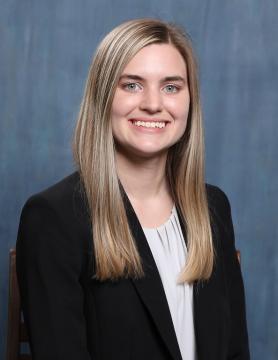On June 9, 2021, the Wilbanks Child Endangerment and Sexual Exploitation (CEASE) Clinic filed an amicus brief authored by post-graduate fellow, Melina D. Lewis, and Director Emma Hetherington in favor of the Georgia Supreme Court hearing arguments in a survivor’s case against St. Joseph’s Catholic Church and other parties in Georgia. On June 21, 2021, the Georgia Supreme Court decided to hear those arguments. A brief history and posture of the case is below:
Plaintiff Phillip Doe filed a lawsuit in Cobb County Superior Court against multiple parties, including Saint Joseph’s Catholic Church, for abuse he suffered in the 1970s by Father Edwards. Plaintiff Doe alleges that the Church knew Father Edwards had abused others before him, and concealed this information from both himself, the congregation, and the general public. Instead of informing the community about a predator in their organization, Plaintiff Doe alleges that they moved the predator around, allowing him to harm others, including the Plaintiff.
Plaintiff Philip Doe put forth various legal arguments for why he should be able to bring a claim against the Church in 2018, one of which is that fraudulent concealment has tolled the statute of limitations in his case. His underlying argument is that by intentionally concealing their own actions and responsibility for abuse that occurred, the Church has escaped liability for the harm done to him. Georgia law allows for the statute of limitations to be tolled where there are instances of fraud in certain circumstances.
The Georgia Court of Appeals held that while the actions alleged by Philip Doe implicate a fraud involving moral turpitude, the actions did not prevent Doe from bringing a claim at the time of the abuse, and therefore, the statute of limitations was not tolled due to fraud. Philip Doe appealed this decision.
The Wilbanks Child Endangerment and Sexual Exploitation Clinic filed an amicus brief to support Philip Doe’s appeal, arguing that the Georgia Court of Appeals was incorrect in their finding that the Church’s alleged actions did not rise to a level of fraudulent concealment to prevent Doe from bringing his claim in the 1970s. In fact, the CEASE Clinic argued that the entire purpose of the concealment of Father Edwards’ prior actions was to prevent the public from knowing and survivors taking legal action against the Church and its leaders. Therefore, CEASE believes it is in the best interest for survivors across the state, including Philip Doe, for the Georgia Supreme Court to hear the case and overturn the Court of Appeals decision. The Georgia Supreme Court granted cert to review this issue on June 21, 2021.
The full amicus brief can be accessed here: Wilbanks CEASE Clinic Amicus Brief For Georgia Supreme Court to Grant Cert.

